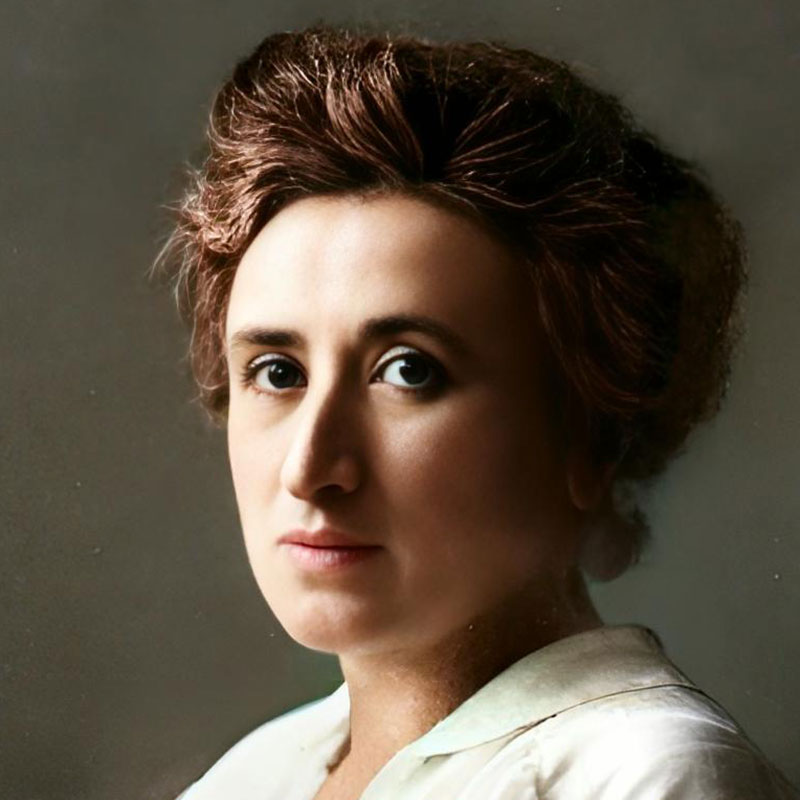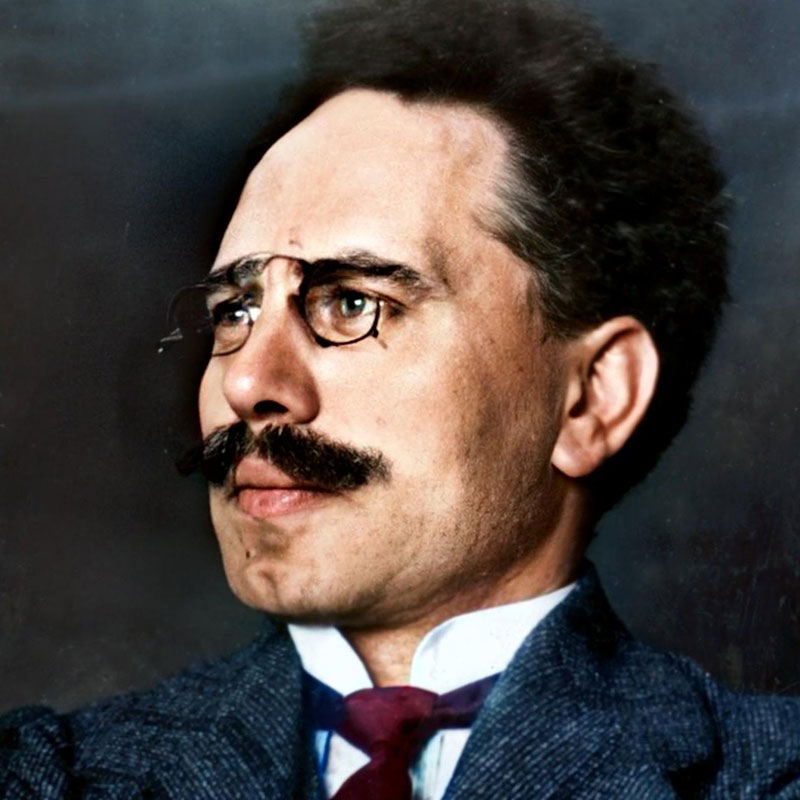Aleksander Parvus
Alexander Parvus, full name Alexander Israel Lazarievich Helphand, was born in 1867 in Berezina, in a family of a Jewish craftsman. He was an activist of the Russian and German socialist movement, the first father and sponsor of Bolshevism, communism in practice, a system which turned into a system of mass extermination of people on an unprecedented scale.
Parvus abandoned Russia at the first opportunity. The radical, communist-minded society abroad in which he was involved caused Tsarist intelligence to take an interest in him. On his return to the homeland he was harassed for this reason. Even after his immigration to Prussia, he became persona non grata due to his radicalism and the police forced him to leave the country. He settled in southern Germany, where he made friends with the crème de la crème of the "revolutionary thought" of the time. Many of them were also emigrants from Russia. Rosa Luxemburg, Karl Liebknecht, Karl Radek, Lev Trotsky are just a few of the most known names. He also met Lenin there.





Parvus began his real fight against Russia in 1905 when, through the distribution of his "Financial Manifesto", he wanted to create panic in the financial market, thus trying to force savers to withdraw their savings from banks threatened with bankruptcy. The banks survived and Parvus was convicted. However, he fled to Germany.
He knew how to make good money. When he embezzled royalties from a play by Maxim Gorky, Rosa Luxemburg played down the scandal so as not to compromise the communist party. However, the money was "lost". But the great fortune he made from trading with the Turkish army. He lived in luxury in his palace on a Mediterranean island. He was a rich man, licentious, with a weakness for women, fond of flaunting his money.
The second opportunity to destroy Russia came up with the First World War. Parvus, through Baron von Wangenheim, presented the German government his 20-page plan entitled "Preparation of mass political strikes in Russia": to paralyse Russia through a general strike, financed by the German government at war with Russia and its allies. Parvus' detailed plan recommended dividing Russia by sponsoring the Bolshevik faction of the Russian Social Democratic Labour Party, supporting ethnic separatists in various regions of Russia, and supporting writers who continued to criticise the Tsar during the war. Drawing on his experiences in 1905, Parvus argued that the division of Russia and its defeat in World War I was the best way to bring about a socialist revolution.
From then on, Parvus became a German agent. From Germany he received half a million marks and a confidential glibness. He sought contact with Lenin, but Lenin - probably afraid of being suspected of having contacts with a German agent - did not even let him into his flat. Parvus embezzled half a million marks again and invested it in the Swiss stock market. Eventually, he made the right contacts and started laundering German money, which flowed into Russia through various companies, efficiently organised by Parvus, and his bribe fund excelled in dealing with Russian guards and authorities. This way 23 million marks in gold came into Russia for the realisation of the Red Revolution. But the revolution was not coming and the German government eventually decided to stop sponsoring Parvus.
Only after about a year did the February Revolution and the assassination of the Tsar set the pace of change. Lenin came on the scene and Parvus became unnecessary. Germany again began to transfer millions of marks to the communist revolutionaries, but this time without Parvus' intermediary. He became inconvenient for his comrades and unnecessary for Germany. Nevertheless, his enormous wealth allowed him to live in luxury in a 32-room palace on the exclusive island of Schwanenwerder near Berlin, where he died in 1924.
https://pl.wikipedia.org/wiki/Aleksandr_Parvus
https://www.rp.pl/historia/art1422831-aleksander-parvus-dyskretny-akuszer-rewolucji
https://ciekawostkihistoryczne.pl/2011/01/15/kto-naprawde-wywolal-rewolucje-pazdziernikowa/